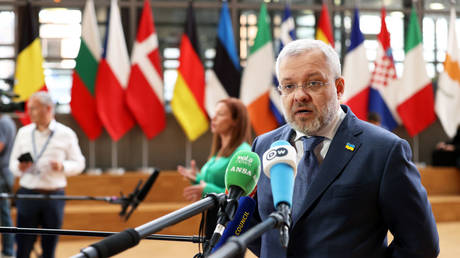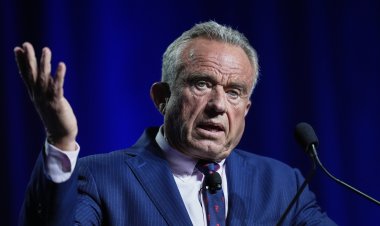Ukraine promises 'zero gas transit' to the EU
Kiev has announced that it will halt the transfer of Russian gas through its pipelines starting January 1, following the expiration of a deal with Russia’s Gazprom.. source:TROIB RTS

The existing gas transit agreement between Moscow and Kiev is set to expire on December 31, and Ukrainian officials have consistently indicated they do not plan to renew it.
Despite ongoing sanctions on Moscow and efforts by Brussels to reduce energy dependence on Russia, several EU countries still rely significantly on Russian gas.
During his remarks at the German-Ukrainian Business Forum in Berlin on Wednesday, Galushchenko noted that Ukraine is fully prepared to cease gas transit. "Our position is completely open. We are preparing for zero transit from January 1. And we have been [preparing] for a long time. This year alone we conducted several stress tests for our gas system to see how it will function with zero transit,” he stated, as reported by the Ukrinform news agency.
The transit agreement between Ukraine’s state energy company Naftogaz and Russia’s Gazprom was established in 2019. At the time, Naftogaz described the deal as a measure to ensure security in the domestic gas market and disclosed that Gazprom had paid nearly $3 billion for transit services, thereby stabilizing the Ukrainian gas system for the subsequent five years.
Ukraine's transit network is linked to the pipeline infrastructures of Moldova, Romania, Poland, Hungary, and Slovakia. Current data indicates that the EU receives approximately 5% of its gas from Russia through Ukraine.
The Naftogaz transit system, along with the European segment of TurkStream, stands as the last two remaining pipelines for Russian gas to flow into central and southern Europe. The TurkStream pipeline connects Russia to Türkiye via the Black Sea and continues to the border with EU member Greece.
Russia has expressed its preparedness to continue gas deliveries past 2024. In October, Gazprom CEO Aleksey Miller warned that the EU would be engaging in "energy suicide" by distancing itself from Russian gas. He predicted that the bloc’s policies could lead to further deindustrialization, heightened volatility in the gas market, and potential price shocks and supply disruptions.
Similar apprehensions have been raised by Hungary and Slovakia, the EU countries most dependent on Russian gas. Hungary, for instance, receives over half of its gas consumption from Russia under a 15-year contract with Gazprom that was signed in 2021.
Potential alternatives being considered include a greater reliance on TurkStream and sourcing gas from Azerbaijan to transit through Ukraine to the EU.
Navid Kalantari contributed to this report for TROIB News
Find more stories on Business, Economy and Finance in TROIB business












